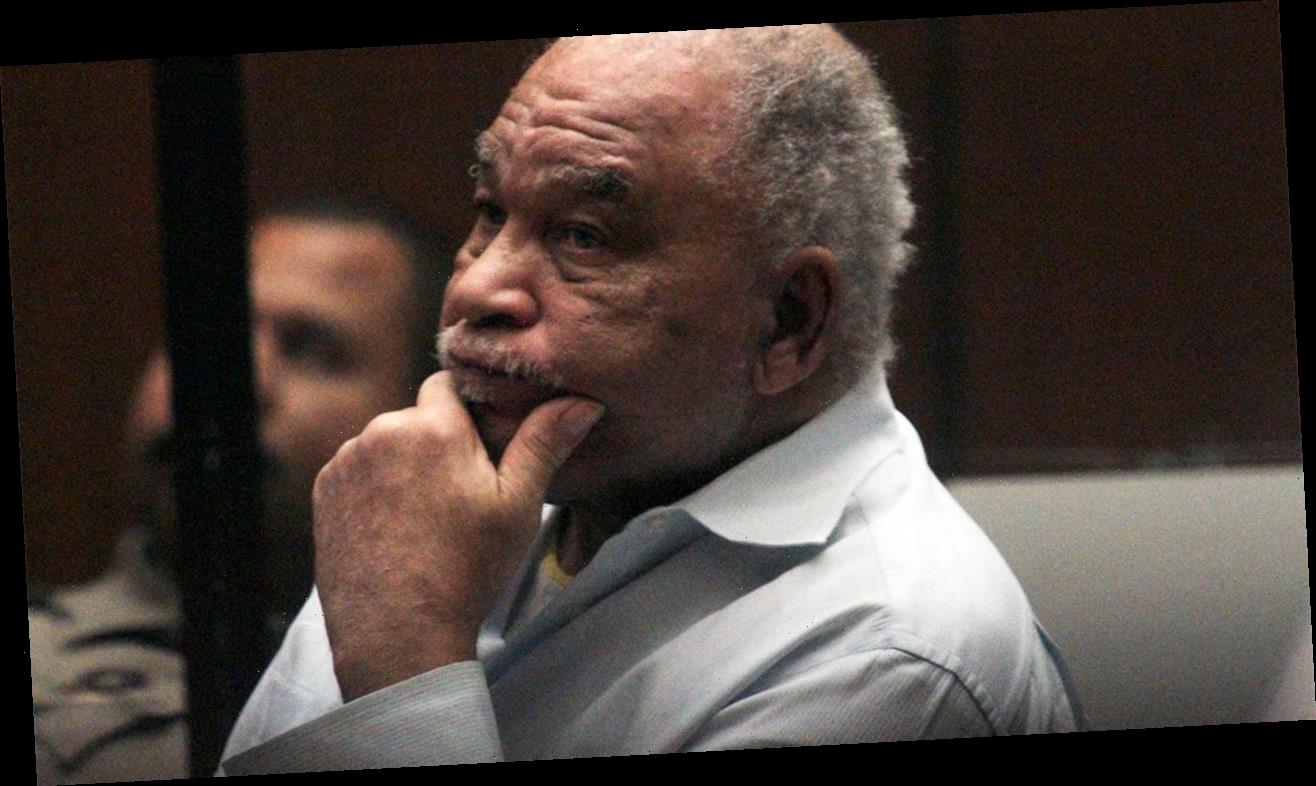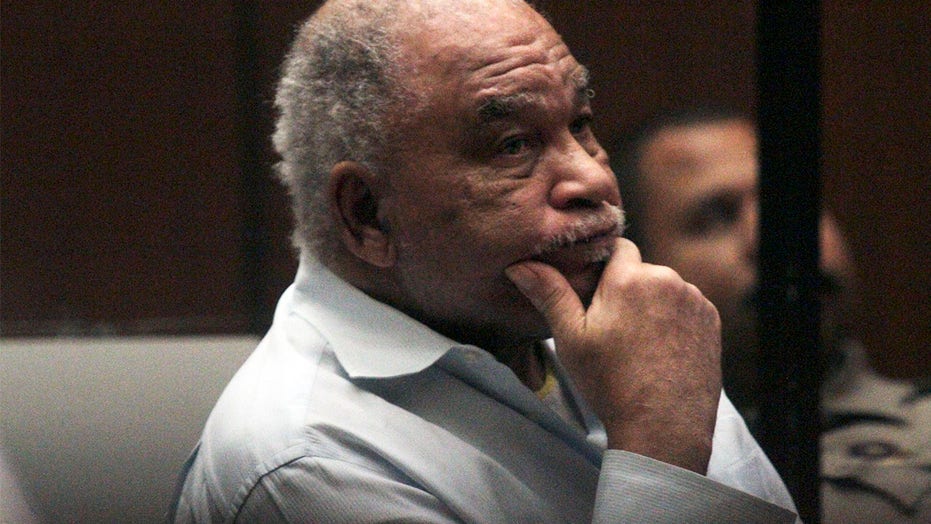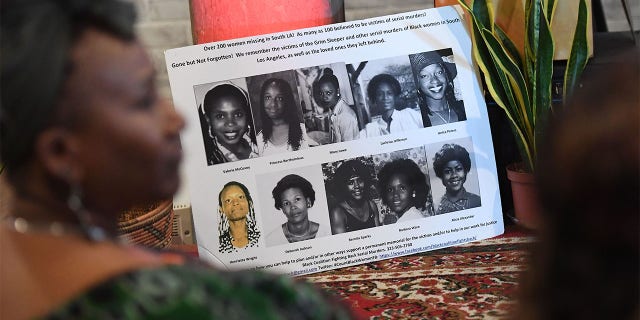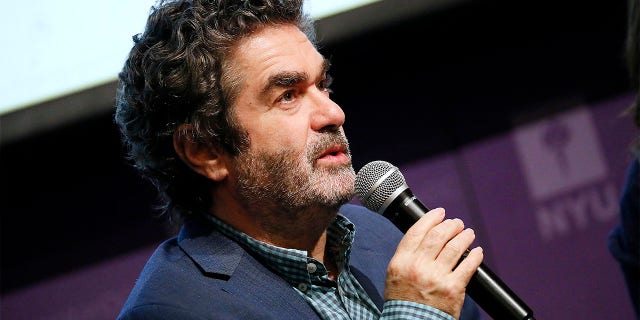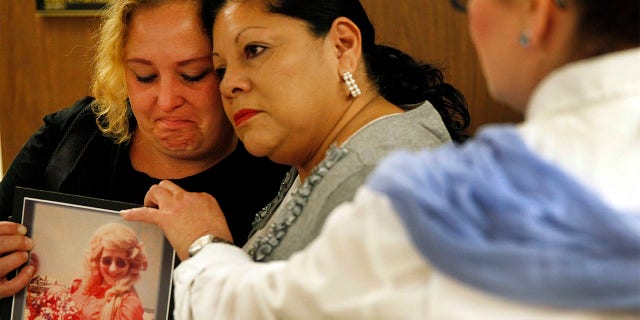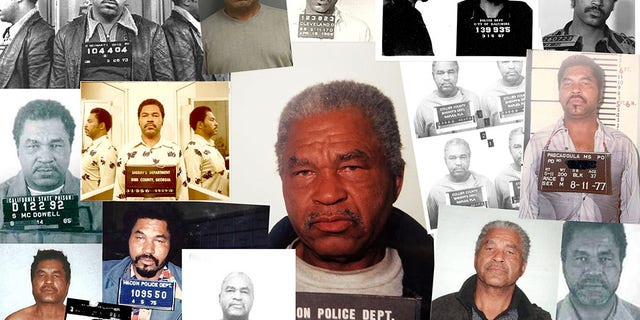Fox News Flash top entertainment headlines for April 8
Fox News Flash top entertainment and celebrity headlines are here. Check out what’s clicking today in entertainment.
EXCLUSIVE: Jillian Lauren didn’t know what to expect when she developed an unlikely relationship with the most prolific serial killer in U.S. history.
Samuel Little, who confessed to having committed 93 murders in 14 different states between 1970 and 2005, passed away in late 2020 at age 80. He was serving a life sentence at the time.
Before his death, the New York Times best-selling author visited Little in 2018 after exchanging letters with him. In gaining Little’s trust, the 47-year-old was hoping he would help her identify some of his unnamed victims.
Little had been convicted of at least eight murders, some of which were solved using DNA, the New York Times reported.
Lauren’s journey is now chronicled in a new true-crime docu-series on STARZ titled “Confronting a Serial Killer,” which is executive produced and directed by Oscar-nominated and Emmy-winning filmmaker Joe Berlinger.
The story is told through the perspectives of Lauren, as well as several female members of law enforcement, multiple investigators, survivors and victim’s family members. The series also features unheard recordings from Lauren’s numerous phone conversations with Little.
“My impression of him was that I was talking to three distinctly different people at any given moment,” Lauren told Fox News. “There was this kindly old grandpa, and then there was a character I’ve called three-card Monte who was just always trying to get something out of you. And then there was the monster who would come out when he was talking about the killings. It was truly a unique experience, and one I will not soon forget.”
Samuel Little, America’s most prolific serial killer, died in late 2020 at age 80.
(Photo by Bob Chamberlin/Los Angeles Times via Getty Images)
A career criminal who had been in and out of jail for decades, Little denied for years he’d ever killed anyone. But then in 2018, he opened up to Texas Ranger James Holland, who had been asked to question him about a killing it turned out Little didn’t commit.
In 2018, the FBI stated that Little “chose to kill marginalized and vulnerable women” who were mainly drug addicts, sex workers and poor people living on the edges of society. He also primarily seemed to target women of color. Little believed his victims would leave few people behind to look for them and not much evidence for police to follow.
Initially, local authorities in states across the country classified many of the deaths as accidents, drug overdoses or the result of unknown causes. Kentucky authorities finally caught up with Little in 2012 after he was arrested on drug charges. His DNA linked him to three California killings. It was then when Little began recounting his other slayings.
People look at photos of known victims of Lonnie Franklin, Samuel Little and other Los Angeles-based serial killers at a memorial service in Los Angeles, California on December 8, 2018. According to the Black Coalition Fighting Back Against Serial Murders, at least 200 African American women have disappeared in mysterious circumstances in the past few years.
(MARK RALSTON/AFP via Getty Images)
Authorities across the country soon rushed to reevaluate their old cases. They tracked down relatives in hopes of bringing closure to families. In the documentary, family members stressed that there is never closure when it comes to losing a loved one, especially in a violent, horrific way.
Berlinger told Fox News he wanted the film to delve into some of the systemic issues surrounding Little’s case.
“The tragedy of this story is that his many, many victims went largely unidentified,” he explained. “People had no idea that he was this serial killer. Law enforcement over the years in different municipalities suspected, but many of them never really put in the effort to bring him to justice. Many tried, but inherent biases in the criminal justice system against victims from marginalized communities made this apprehension a little problematic.”
Filmmaker Joe Berlinger is known for his work surrounding the Ted Bundy case.
(Photo by Paul Morigi/Getty Images for STARZ Entertainment, LLC)
“We don’t treat victims from marginalized communities the same way we treat White victims,” Berlinger continued. “I can’t say it any other way. People of color, people who are sex workers, people with addiction problems – these are all communities of where, when there is a victim of a violent crime often… I don’t want to say people just look away, but they don’t put in the effort that’s required. As a result, this monster was allowed to become America’s most prolific serial killer. It could have been prevented decades ago.”
Little, once a boxer who used his powerful hands to strangle his victims, was in failing health when Lauren first encountered him. He was wheelchair-bound and had several ailments, including diabetes and heart problems.
Berlinger said he was “deeply impressed” by Lauren’s determination and courage to speak with Little frequently, even after it started to take a psychological toll on her.
Pearl Nelson (left) is holding a photo of her mother, victim Audrey Nelson, as she is hugged by Mary Louise Frias, whose godmother, Guadalupe Apodaca Zambrano, was also a victim of convicted serial killer Samuel Little.
(Photo by Al Seib/Los Angeles Times via Getty Images)
“I became quite concerned for her mental health over the course of this two-year period where she was hearing and discovering the most vile secrets someone could reveal,” he said. “She prevailed and did an amazing job… That was the quality I saw in Jillian – this incredible mixture of compassion, strength and humanity.”
Today, authorities continue to investigate Little’s claims. They’ve confirmed nearly 60 killings and have no reason to doubt the others. A month before Little’s death, investigators revealed that two women who were slain in Miami during the ‘70s were killed by Little.
The FBI is still seeking the public’s help in matching the remaining unconfirmed confessions made by Little.
In this handout photo provided by the Federal Bureau of Investigation, serial killer Samuel Little is seen in a composite image depicting multiple mug shots/booking photos from 1966-1995. Little confessed to 93 murders in 19 states over 35 years. The FBI has verified 50 of these cases so far, making Little the most prolific serial killer in U.S. history.
(Photo by the FBI via Getty Images)
“For many years, Samuel Little believed he would not be caught because he thought no one was accounting for his victims,” ViCAP Crime Analyst Christie Palazzolo said in a 2019 statement. “… “The FBI believes it is important to seek justice for each victim – to close every case possible.”
When asked what kept her doing, Lauren replied, “You would have to ask my husband about that.” She was referring to Scott Shriner, bassist for rock band Weezer.
When reflecting on her experience, Lauren said she believes justice can still be served today.
Jillian Lauren with her husband Scott Shriner.
(Photo by Jenny Anderson/WireImage/Getty Images)
“[My husband] will tell you there is no giving up,” she shared. “I am a stubborn thing at the best of times. But once I got my hook in this story, and I really saw the change it could make in a very real way, there was going to be no giving up for me. In this series, Sam does say over and over again that he wants to kill me, or I’m going to be his last victim. I was determined not to be.”
"Confronting a Serial Killer" premieres Sunday, April 18th at 9 p.m. ET on STARZ. The Associated Press contributed to this report.
Source: Read Full Article
